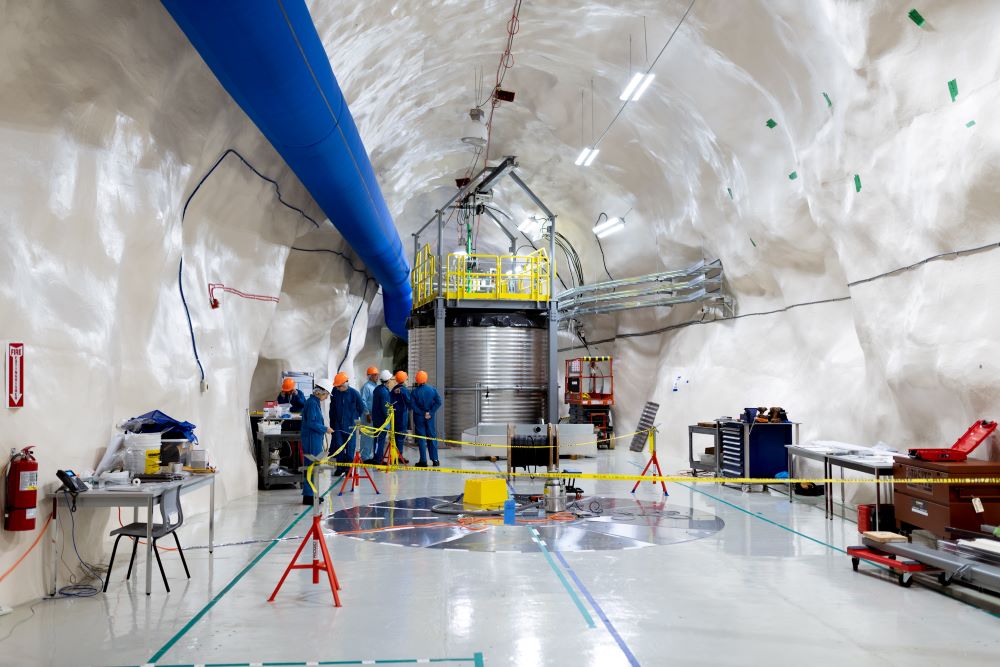SNOWLAB transitions to quantum computing


A new collaboration between researchers from the Institute for Quantum Computing (IQC) at the University of Waterloo, SNOLAB near Sudbury, Ont., and Chalmers University of Technology in Sweden has been awarded a new grant to investigate the impact of radiation and cosmic rays on quantum technologies.
This grant, sponsored by the U.S. Army’s research office, has been awarded to Dr. Chris Wilson, a faculty member at IQC and professor in Waterloo’s Department of Electrical and Computer Engineering, alongside Dr. Jeter Hall, director of research at SNOLAB and adjunct professor at Laurentian University, and Dr. Per Delsing, professor at Chalmers University of Technology and director of the Wallenberg Center for Quantum Technology.
“By partnering with the experts in dark matter and cosmic radiation at SNOLAB, we can bring together their expertise and strengths with the superconducting qubit skills we have at IQC and Chalmers,” says Wilson from IQC. “We’re also able to connect to the quantum communities and funding within the United States while showcasing the unique facilities and capabilities in Canada’s scientific ecosystem.”
The team of researchers plan to examine the known link between cosmic rays and quantum bits, or qubits, which hold information at the quantum level. Recent experiments had identified that one source of errors that occur in qubits are from being hit by a high energy particle, such as a cosmic ray or radioactivity. This results in an error hotspot, which spreads out to neighbouring qubits, and has been seen happening at a rate of about once every 10 seconds, setting an upper limit on quantum calculation time.
Like classical computers, which can use design rules and error correction to account for these high energy particles, most of the leading quantum error correction methods assume that each error is completely independent. This assumption of uncorrelated errors is not true in superconducting qubit processors, sometimes all the qubits will error in response to radiation. This creates a challenge known as decoherence, where the qubit loses its quantum state.
SNOLAB is the world’s deepest cleanroom, built 2 km underground in Vale’s Creighton mine. Using the Canadian Shield to create a low background environment, the laboratory shields scientific experiments from the high-energy particles from space. This unique environment will allow the research collaboration to isolate the qubits from the cosmic radiation at the surface.
High quality superconducting qubits will be manufactured in the fabrication facilities at Chalmers University, and then tested at the surface in both Sweden and Waterloo, as well as underground at SNOLAB to study the differences in each environment.
Learn more about the SNOLAB on SNOWLAB.ca.
Comments